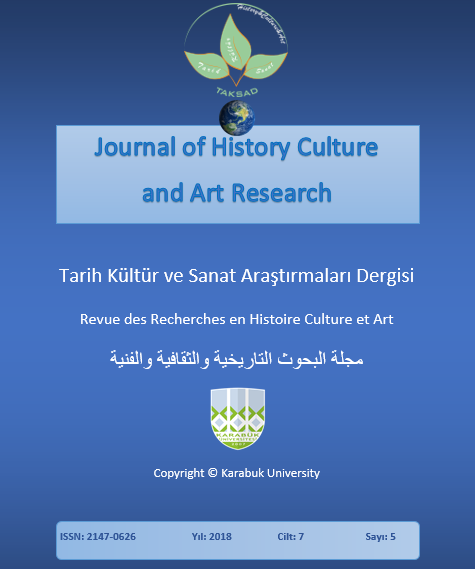The Standardization Procedure for Iranian Music (Focusing on the Activities of Alfred Jean Baptiste Lemaire, Aref Qazvini and Ali-Naqi Vaziri)
DOI:
https://doi.org/10.7596/taksad.v7i5.1661Keywords:
Music, Standardization, Alfred Jean Baptiste Lemaire, Aref Qazvini, Ali-Naqi Vaziri, Qajar, First Pahlavi.Abstract
The study of Iranian music changes during Qajar and early Pahlavi era, reveals a procedure which indicates the beginning of a kind of standardization. The term “standardization” (matching) seems to be able to state a part of Iranian music change within history. The study of three existing characters of this period of Iran's history (Alfred Jean Baptiste Lemaire, Aref Qazvini and Ali-Naqi Vaziri) raises this question that how standardization (matching) can be followed up in the activities of the aforementioned elites. Having responded to this question, the quality and quantity of Iranian music changes in the intended historical era can be somehow figured out. This study has been conducted through library study using descriptive-analytical method. The findings of this study represent the manner of standardization (matching) in the activities of these three artists. Using notation system and changing the instrument structure, playing Iranian songs with Western instruments, scientific teaching at school and training the apprentices, holding concert and changing the themes and content of some executions and writing music book are among the cases, supposed to be investigated in this paper.
References
Behkhial, Mahdi (2017). Letters of Aref Qazvini. Tehran: Hermes.
Bulookbashi, Ali & Shahidi, Yahya (2002). A Research in military music and Instruments of the Qajar Period. Tehran: Office of Cultural Studies.
Darvishi, Mohammadreza (1995). Looking at West. Tehran: Mahoor.
Farhat, Hormoz (2013). Vaziri's instrument and the incompatibility of traditionalists. www.tarikhirani.ir/fa/files/67/bodyView/694 accessed on 20 June 2018.
Fatemi, Sasan (2013). The emersion of popular music in Iran. Tehran: Mahoor.
Fatemi, Sasan (2014). Celebration and music in Iranian urban cultures. Tehran: Mahoor.
Fatemi, Sasan (2014). The process of Western music influence in Iran in Qajar era. Fine Arts magazine, performing arts and music, 19(2), 5-16.
Gidenz, Antony (2015). Sociology. Translated by Hassan Chavoshian (10th ed.). Tehran: Ney.
Khaleghi, Roohollah (2011). The story of Iranian music (2nd ed.). Tehran: Mahoor.
Koohestani nejad, Masoud (2005). Music in the Constitutional Era. Tehran: Mehrnamag.
Mallah, Hosseinali (1975). History of Iranian military music. Tehran: Journal of Arts and People.
Miralinaqi, Alireza (1998). Vaziri's musical letter. Tehran: Moein.
Safarzadeh, Farhood (2016). Çarkhe bi āein, an investigation about Abolghasem Aref Ghazvini (2nd ed.). Tehran: Fenjan.
Sahbaei, Manuchehr (2003). Iranian ballads and Avaz. Tehran: Mahoor.
Sepanta, Sasan (1998). The history of changes of music recording in Iran. Tehran: Mahoor.
Sobhani, Toufiq (2007). History of literature of Iran. Tehran: Zavar.
Toffler, Elvin (2015). Third Wave. Translated by Shahindokht Kharazmi (22nd ed.). Tehran: No.
Zandbaf, Hasan (2013). The history & culture of world’s music (2nd ed.). Tehran: Surah Mehr.
Downloads
Published
How to Cite
Issue
Section
License
All papers licensed under Creative Commons 4.0 CC-BY.- Share — copy and redistribute the material in any medium or format
- Adapt — remix, transform, and build upon the material for any purpose, even commercially.
Under the following terms:
Attribution — You must give appropriate credit, provide a link to the license, and indicate if changes were made. You may do so in any reasonable manner, but not in any way that suggests the licensor endorses you or your use.
- No additional restrictions — You may not apply legal terms or technological measures that legally restrict others from doing anything the license permits.







